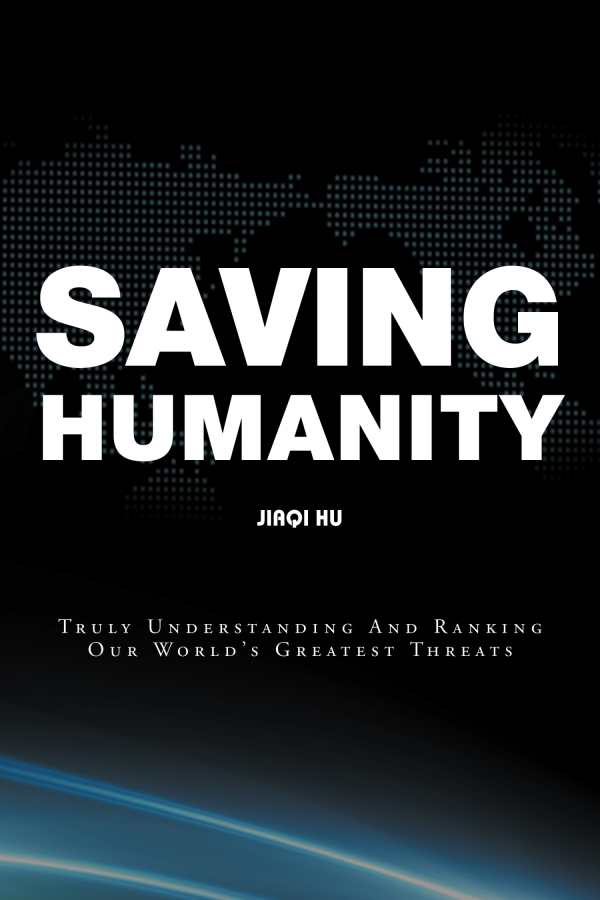
Saving Humanity
Truly Understanding And Ranking Our World's Greatest Threats
The imaginative Saving Humanity draws attention to the threat that artificial intelligence poses to global stability.
Broad in scope and easy to read, Jiaqi Hu’s Saving Humanity argues for the establishment of a world government in the face of rapid technological advancement.
The thirteen-chapter book centers on the premise that human extinction is imminent. Since the start of the twenty-first century, Hu insists, technology has progressed at an alarming rate. Left unchecked, scientists soon will develop self-aware artificial intelligence, or existing artificial intelligence will become self-aware, at which point it will turn on humanity and extinguish civilization. The book contends that the only way to avoid this catastrophe is to establish a global government capable of suppressing any scientific activity that might lead to the creation of self-aware artificial intelligence.
The book is highly organized. Each of the book’s thirteen chapters begins with a brief introduction that clarifies the topic. From there, each chapter is divided into numbered sections and subsections, allowing the argument to unfold in a clear way. That every section is titled makes locating a subject fairly easy, even though the book lacks an index. All the chapters are of equal length as well, excepting a brief chapter on the book’s methodology, and no one topic is more exhaustively considered than the rest.
The book was first written in Chinese then translated into English, and grammatical errors and awkward phrases are scattered throughout the text. Run-on sentences and incorrect idioms are common, and some words appear to have been incorrectly translated. The book refers to world superpowers as “big countries” and to genetic traits as “information.” None of the errors are so egregious that they make the book difficult to read, but they do disrupt the flow of the text.
The second half of the book is more engaging than the first. The first five chapters overview external and internal threats to humanity other than artificial intelligence, from asteroids to nuclear war to climate change. While informative, the topics don’t pertain to the book’s thesis, and two hundred pages have passed before the book begins to discuss artificial intelligence and world government. The pace of the writing then picks up, and the book proposes an expansive vision for how nations might unify.
Imaginative if not grounded, Saving Humanity draws attention to the threat that artificial intelligence poses to global stability. Aligning with the arguments of thinkers like Stephen Hawking, the book urges the establishment of global governance to check technological advancement and scientific innovation.
Reviewed by
Michael Kaler
Disclosure: This article is not an endorsement, but a review. The publisher of this book provided free copies of the book and paid a small fee to have their book reviewed by a professional reviewer. Foreword Reviews and Clarion Reviews make no guarantee that the publisher will receive a positive review. Foreword Magazine, Inc. is disclosing this in accordance with the Federal Trade Commission’s 16 CFR, Part 255.
